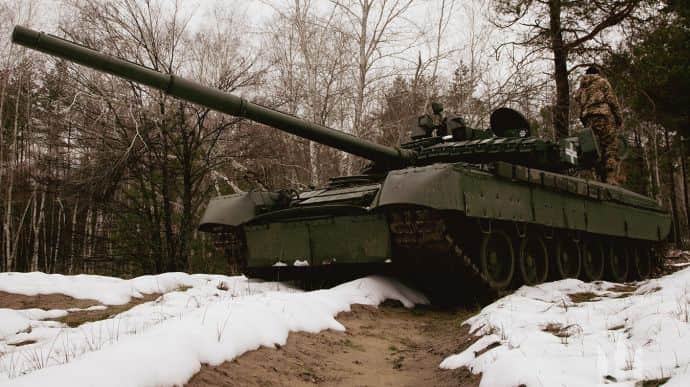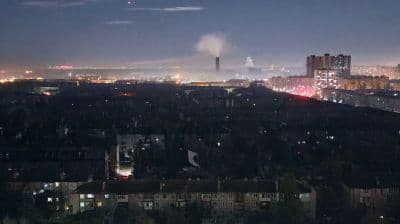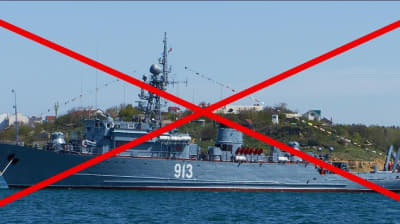Ukraine's position on battlefield may deteriorate in upcoming winter, but Russia won't meet its goals – WSJ

The Wall Street Journal has reported the next year will prove challenging for Ukraine's defence and that its position on the battlefield may change this winter. At the same time, Russia is unlikely to secure major victories despite its advantages. Kyiv is advised to improve the mobilisation and training of its troops, to abandon the offensive and to reinforce its defence lines.
Source: The WSJ
Details: The story's author, Marcus Walker, pointed out that Russia's war against Ukraine will soon enter its third year, with Moscow enjoying the upper hand on the military, political and economic fronts.
Russia has many more people to backfill its forces than the Ukrainians do. Russian President Vladimir Putin has pursued putting the Russian economy on a war footing, exploiting massive oil revenues to circumvent sanctions. And political paralysis in the United States and Europe jeopardises the flow of weaponry and funds on which Ukraine's survival depends.
Quote: "Western disarray and Russia’s growing commitment of its human and industrial resources to the war point to a bitter year on the defensive for Ukraine. But the Russian army’s limitations on the offensive—on display in the grueling fight for the city of Avdiivka—suggest it is more likely to grind out small gains than to achieve a breakthrough.
Putin is still a long way from conquering the Ukrainian regions Russia has claimed—let alone from achieving his bigger goal of subjugating Ukraine, whose existence as an independent nation-state he has called a historical anomaly."
Quote from Michael Kofman, Senior Fellow at the Carnegie Endowment for International Peace: "The material advantages in 2024 are principally on Russia’s side, but they don’t appear decisive enough that Russia will be able to achieve its political aims.
It’s inaccurate to suggest that Russia is winning the war. However, if the right choices are not made next year on Ukraine’s approach and Western resourcing, then Ukraine’s prospects for success look dim."
Details: The WSJ says, "Zelensky’s war aim of fully restoring Ukraine’s international borders is seen as unrealistic by the West".
The newspaper also notes that "some European officials even fear Ukraine’s position on the battlefield could unravel this winter".
The article points out that the Ukrainian Armed Forces are short of infantry after suffering heavy losses in the summer counteroffensive and during the fierce defence of the town of Bakhmut last winter.
"Thanks to a dysfunctional draft system plagued by corruption, many of the replacements are men in their 40s and are often sent to the trenches with too little training," Walker claimed.
Quote from the WSJ: "Shortages of ammunition also mean Ukraine is unlikely to be able to mount another major offensive for some time. Ukrainian troops’ establishment of a bridgehead on the east bank of the Dnipro River in the Kherson region is a rare bright spot, albeit small in scale.
But the Russian army is also struggling to achieve any notable breakthroughs, despite its numerical advantages in troops and equipment. Its infantry and vehicles are often older and of lower quality than the force it began the invasion with.
Both sides are finding it hard to advance across open, heavily mined terrain beneath skies buzzing with drones, which can attack troops and vehicles or direct accurate artillery fire."
Details: The newspaper claims that the "military stalemate" supposedly fuels the perception in Germany that a ceasefire and negotiations with Russia would be in Ukraine's interest.
At the same time, the West has taken only modest steps to ramp up military production and slowed down Ukraine's arming, whereas Russia has increased drone production and received a million projectiles from North Korea in the autumn. The South Korean munitions helped Ukrainian artillery reach parity with Russian forces for part of 2023, but now Ukrainian troops face a disadvantage again, the WSJ suggests.
Meanwhile, the WSJ reports that Ukrainian officers and Western experts believe that exhausted Ukrainian troops can still organise an effective defence along the contact line by mobilising their resources and limiting Russia to localised gains.
The Ukrainian Defence Ministry is planning to build new defensive fortifications after seeing how effective Russian fortifications in Ukraine’s south were this summer.
"Next year can be put to good use as a build year to reconstitute the Ukrainian military," Kofman indicated.
The analyst believes that Kyiv should improve the mobilisation and training of its troops, abandon the offensive and reinforce its lines.
"If that doesn’t happen, then next year can become a turning point, after which Ukraine will increasingly become disadvantaged," Kofman forecasts.
Background: Valerii Zaluzhnyi, Commander-in-Chief of the Armed Forces of Ukraine, stated that the situation on the battlefield has reached a deadlock, with neither side able to advance as they are equally technologically equipped.
Zaluzhnyi noted that the war with Russia is entering a new stage: positional combat with static and exhausting battles that require high technology to prevail.
Support UP or become our patron!







